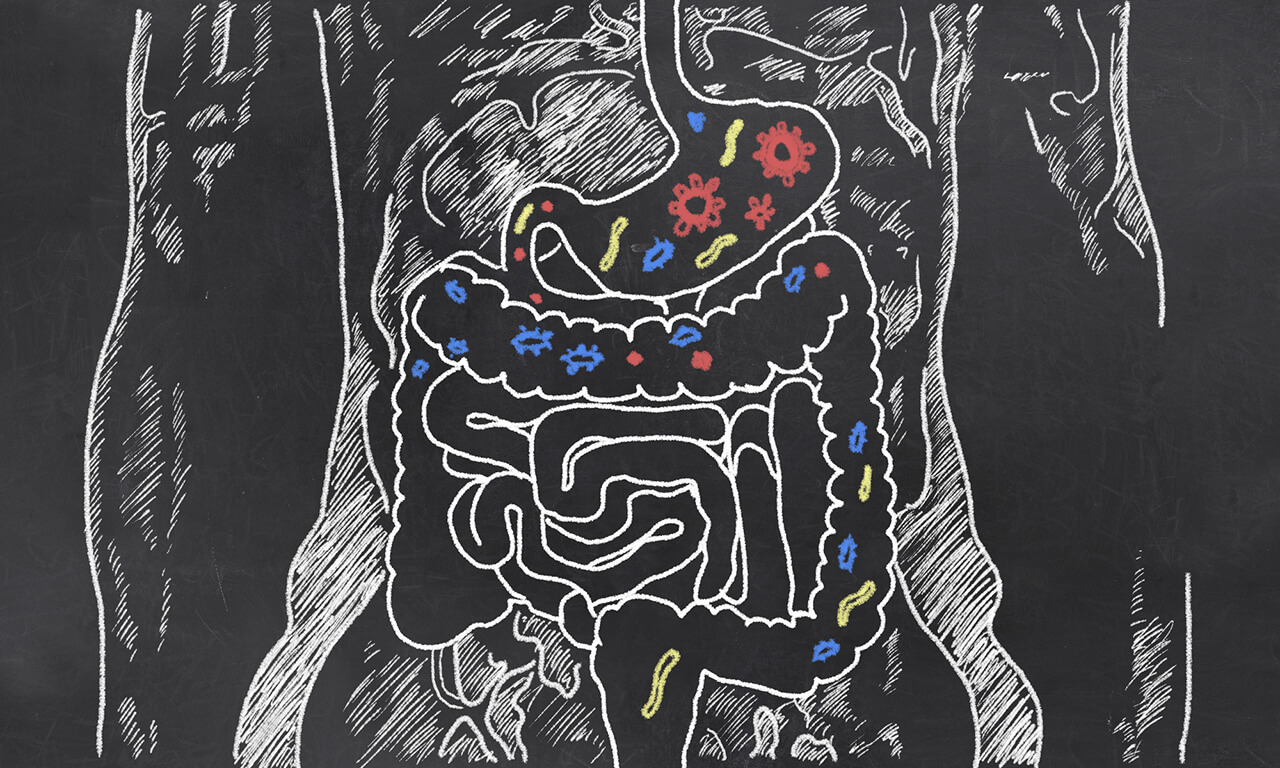- Empty cart.
- Continue Shopping
The Connection Between Gut Health and Overall Well-being

In recent years, there has been a growing recognition of the intricate relationship between gut health and overall well-being. The human gut, often referred to as the “second brain,” is a complex ecosystem of microorganisms that play a pivotal role in maintaining our physical and mental health.
Understanding the Gut Microbiome
Before delving into the connection between gut health and overall well-being, it’s crucial to understand what the gut microbiome is. The gut microbiome refers to the vast community of microorganisms, including bacteria, viruses, fungi, and other microbes, residing in our gastrointestinal tract. These microbes form a delicate balance that is vital for various physiological processes within the body.
The Gut-Brain Axis
One of the most intriguing aspects of gut health is its connection to the brain, often referred to as the “gut-brain axis.” This bidirectional communication system between the gut and the brain plays a crucial role in influencing our mood, behavior, and overall mental health. How does this connection work?
1. Neurotransmitters Production
The gut is home to a significant portion of our body’s neurotransmitter-producing cells. Neurotransmitters are chemical messengers that facilitate communication between nerve cells. For example, serotonin, a neurotransmitter commonly associated with mood regulation, is primarily produced in the gut. An imbalance in gut bacteria can affect the production of serotonin, potentially leading to mood disorders like depression and anxiety.
2. Inflammation and Immune Response
A balanced gut microbiome also helps regulate inflammation and immune responses in the body. Chronic inflammation has been linked to various mental health conditions, including depression and anxiety. When the gut microbiome is imbalanced, it can trigger inflammation, which may have a detrimental impact on mental well-being.
3. Stress Response
Stress can significantly affect gut health, and conversely, an unhealthy gut can contribute to stress. The gut-brain axis plays a crucial role in the body’s stress response system. Stress can disrupt the balance of gut bacteria, leading to gastrointestinal issues and further exacerbating stress and anxiety.
Gut Health and Physical Well-being
While the gut-brain axis is a compelling aspect of the gut’s influence on overall well-being, it’s essential to recognize that gut health also has a profound impact on physical well-being. Here are some key ways in which a healthy gut contributes to overall physical health:
1. Nutrient Absorption
A healthy gut is essential for efficient nutrient absorption. The gut microbiome helps break down food and absorb essential vitamins and minerals. Without a balanced gut, nutrient absorption may be compromised, leading to various deficiencies and health issues.
2. Digestive Health
Gut health plays a central role in digestive health. A balanced gut microbiome helps prevent digestive disorders such as irritable bowel syndrome (IBS), constipation, and diarrhea. These conditions can significantly impact an individual’s quality of life.
3. Weight Management
Surprisingly, gut health is also linked to weight management. Research has shown that the composition of gut bacteria can influence metabolism and the body’s ability to store and burn fat. An imbalanced gut microbiome may contribute to weight gain and obesity.
4. Immune System Support
Approximately 70% of the body’s immune cells reside in the gut-associated lymphoid tissue. A healthy gut microbiome helps support the immune system, making it more robust and effective in defending against infections and diseases.
Maintaining a Healthy Gut Microbiome
Given the critical role of the gut microbiome in overall well-being, it’s essential to take steps to maintain a healthy gut. Here are some strategies to support gut health:
1. Diet
A balanced diet rich in fiber, fruits, vegetables, and fermented foods can promote a diverse and healthy gut microbiome. These foods provide the necessary nutrients for beneficial gut bacteria to thrive.
2. Probiotics
Probiotics are live bacteria and yeasts that are beneficial for gut health. They can be found in foods like yogurt and kefir or taken as supplements. Probiotics help restore and maintain a healthy balance of gut bacteria.
3. Prebiotics
Prebiotics are non-digestible fibers that serve as food for the beneficial bacteria in the gut. Foods like garlic, onions, and asparagus are excellent sources of prebiotics.
4. Stress Management
Reducing stress through techniques like mindfulness, meditation, and exercise can help support a healthy gut microbiome and improve overall well-being.
5. Avoiding Antibiotic Overuse
While antibiotics are essential for treating bacterial infections, overuse can disrupt the balance of gut bacteria. It’s crucial to use antibiotics only when prescribed by a healthcare professional and to complete the full course of treatment.
Seeking Professional Guidance
If you’re experiencing persistent gut issues or have concerns about your gut health, it’s advisable to seek guidance from a healthcare professional. A doctor or registered dietitian can help diagnose and address gut-related problems, recommend dietary changes, and, if necessary, prescribe treatments or supplements.
In conclusion, the connection between gut health and overall well-being is a compelling and multifaceted one. A balanced gut microbiome not only influences our mental health and mood through the gut-brain axis but also plays a pivotal role in maintaining physical health and supporting the immune system. By adopting a healthy diet, incorporating probiotics and prebiotics, managing stress, and seeking professional guidance when needed, individuals can take proactive steps to promote a flourishing gut microbiome and, in turn, enhance their overall well-being. Recognizing the importance of gut health is a significant step toward achieving a happier, healthier life.








